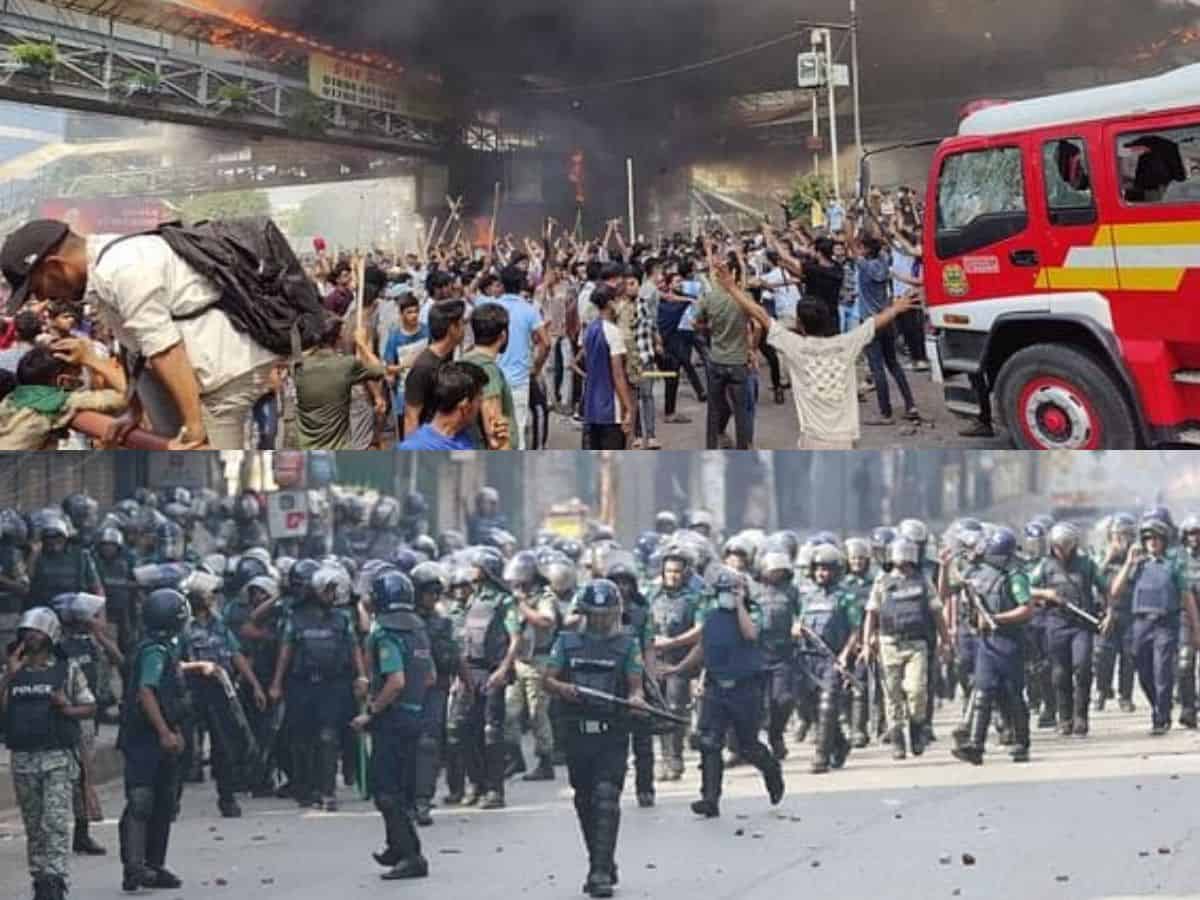
With the killings of three more people in Dhaka’s Rampura-Badda area on Friday, July 19, the toll in the ongoing protest against freedom fighter quota in Bangladesh crossed 35.
The protest over the controversial quotas for government jobs turned violent after the pro-government Bangladesh Chhatra League and Police attacked the peaceful demonstrators earlier this month. Subsequently, the unrest spread across the country. On Thursday, clashes were the bloodiest since the start of the protests, with more than two dozens getting killed and over 1,500 getting injured.
The situation in Dhaka remains very volatile, intense and critical, according to Al Jazeera. Violence has spread to other cities and smaller towns.
Protest against ‘freedom fighter quota’
The ‘anti-discrimination student movement’ activists have been protesting against the reservation quota system that has a 30% reservation for families of the country’s freedom fighters, which they say favours the supporters of the Awami league, the nation’s ruling party. With the rising economic issues and higher unemployment, the protests intensified.
Bangladesh’s private sector, once a leading factor in its growing economy, is now stagnant. This led to the private sector offering fewer job opportunities and increased the demand for government sector jobs. The ‘freedom fighter quota’ reduces the number of government job opportunities, which are open to all, and the protesting students want these jobs to be filled on the basis of merit.
Reservation was scrapped earlier
The reservation, once scrapped in 2018, was reinstated by the High Court in June. This sparked nationwide student demonstrations and the Supreme court intervened by temporarily suspending the High Court order following the government’s appeal to it and setting up August 7 as the date of hearing.
Meanwhile, Prime Minister Sheikh Hasina’s derogatory remarks compared them to those who collaborated with Pakistan during Bangladesh’s struggle for independence resulting in huge furor against the government and sparked massive uproar across the nation.
Communication snapped
Bangladesh is facing a near-complete isolation from the world outside due to a nationwide communication shutdown imposed by the Sheik Hasina government. All telecom services, including mobile data and broadband, have been suspended. Reports say that even SMS and voice call services are not available since Friday morning. Many news organisations based in Bangladesh have been off the air at the time of writing.
Imam held during funeral prayers
A video was released by the opposition party on Thursday showing an Imam being taken away by the police while offering funeral prayers for the students killed during the violence.
India’s reaction
The External Affairs ministry of India commented over the issue with its spokesperson Randhir Jaiswal saying, “We see this as an internal matter of the country”.
He said that around 15,000 Indians including 8,000 students residing in Bangladesh are currently safe. “We have issued an advisory for Indian nationals, including our students, resident in Bangladesh for their safety and assistance if required. Helpline numbers are activated operating on a 24×7 basis for people to reach out.”, Jaiswal added.
Meanwhile, Bangladeshi citizens residing in India are worried about the situation at home. A Bangladeshi national, who resides in Hyderabad, expressed concerns over the difficulty in the connecting with his family. “Cable TV is the sole functioning communication in the country right now as the government uses it as the tool to reach to the people while controlling the internal narrative,” he said. He added that he is hoping that the communication services are restored by late tonight or early tomorrow.
Students detained in Kolkata
The West Bengal police on Friday detained students and activists who held a demonstration to show their solidarity with the protesting students in Bangladesh. The solidarity rally organised by many Left wing student organisations and human rights organisations saw hundreds of individuals near the Academy of Fine Arts.
A tussle between the police and the students occurred during a march towards the Bangladesh Deputy High Commission in Kolkata. Several demonstrators were detained.



